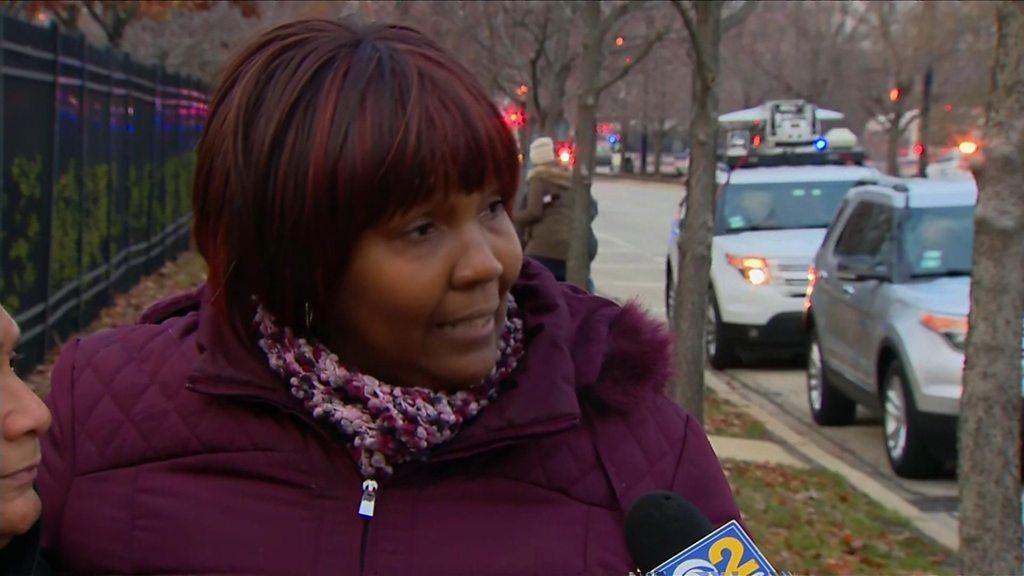Wrong Chicago family takes 'brother' off life support amid mistaken identity
- Published
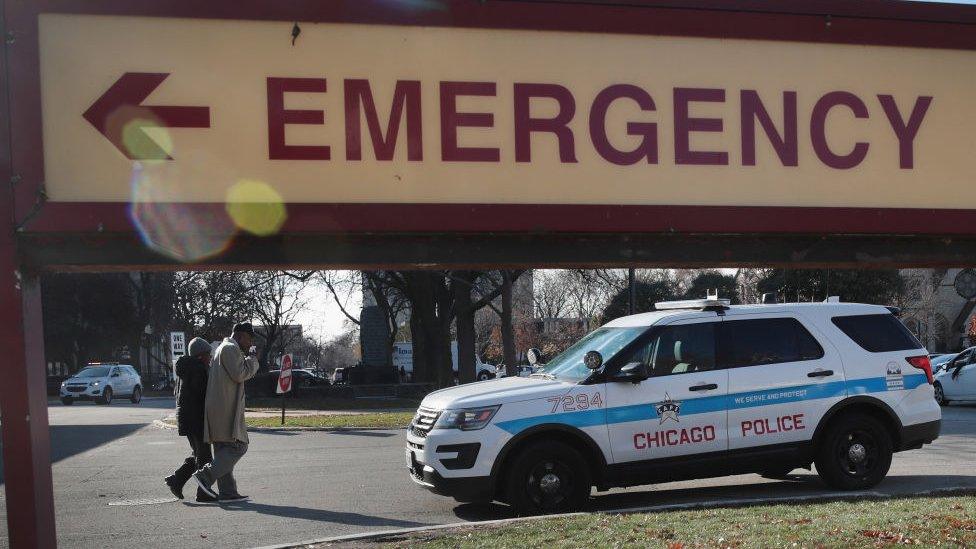
The wrong family sat by a man as he died in Mercy Hospital, Chicago
A US hospital switched off life support for a patient after the wrong family gave its consent, a lawsuit alleges.
The man was taken to Mercy Hospital in Chicago, Illinois, in April, after being found lying unconscious beneath a car, naked with facial injuries.
Chicago police identified him through mug shots as Alfonso Bennett, and in May the hospital contacted relatives.
He died after they agreed to switch off the life support, but the real Mr Bennett later showed up at a barbecue.
His family were arranging his funeral when Mr Bennett reappeared, having been away.
After fingerprinting him at the morgue, police then named the dead man as Elisha Brittman, 69, and his real family were eventually contacted.
Both families are now suing the hospital and the city of Chicago for negligence and inflicting intentional emotional distress.
'I could not recognise him'
When he arrived at the hospital, the victim was listed as John Doe, meaning his real name was unknown.
After being told that Mr Bennett was in hospital, his siblings expressed doubts that the man was their brother when they went to visit him.
"I said 'how did you all verify this was my brother?'" Rosie Brooks, his sister, told reporters on Wednesday. "In my heart I could not recognise him."
The hospital staff told the sisters they could not recognise him because of his facial injuries and suggested they were struggling to come to terms with the situation.
Mr Bennett's real whereabouts during that period are unclear.
Mercy Hospital has refused to comment on the case.
Who really died?
The man who was found beneath the car in Chicago was Elisha Brittman, 69.
When his family were finally called, they said he had been missing for some time.
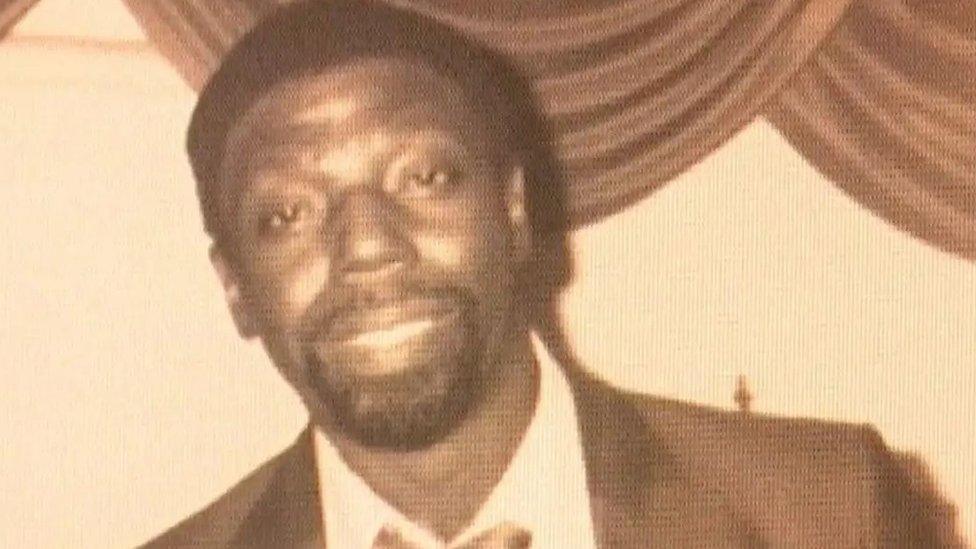
Elisha Brittman was described as an avid reader and "gentle giant"
"We called the morgues. We called the hospital," Mioshi Brittman, his great niece, told CBS news., external "We called everywhere."
She said it should not have happened.
What will happen now?
A lawyer for the Bennett family, Cannon Lambert, said it was unacceptable for the "hospital and law enforcement to perceive people as invisible".
State Senator Patricia Van Pelt said police should have used either fingerprinting or DNA to try to immediately establish the patient's identity.
"To say that we currently have questions is an understatement," Chicago Police chief communications officer, Anthony Guglielmi, tweeted in June.
"We have detectives looking into every aspect of this incident", he added.
Allow X content?
This article contains content provided by X. We ask for your permission before anything is loaded, as they may be using cookies and other technologies. You may want to read X’s cookie policy, external and privacy policy, external before accepting. To view this content choose ‘accept and continue’.
- Published2 July 2019
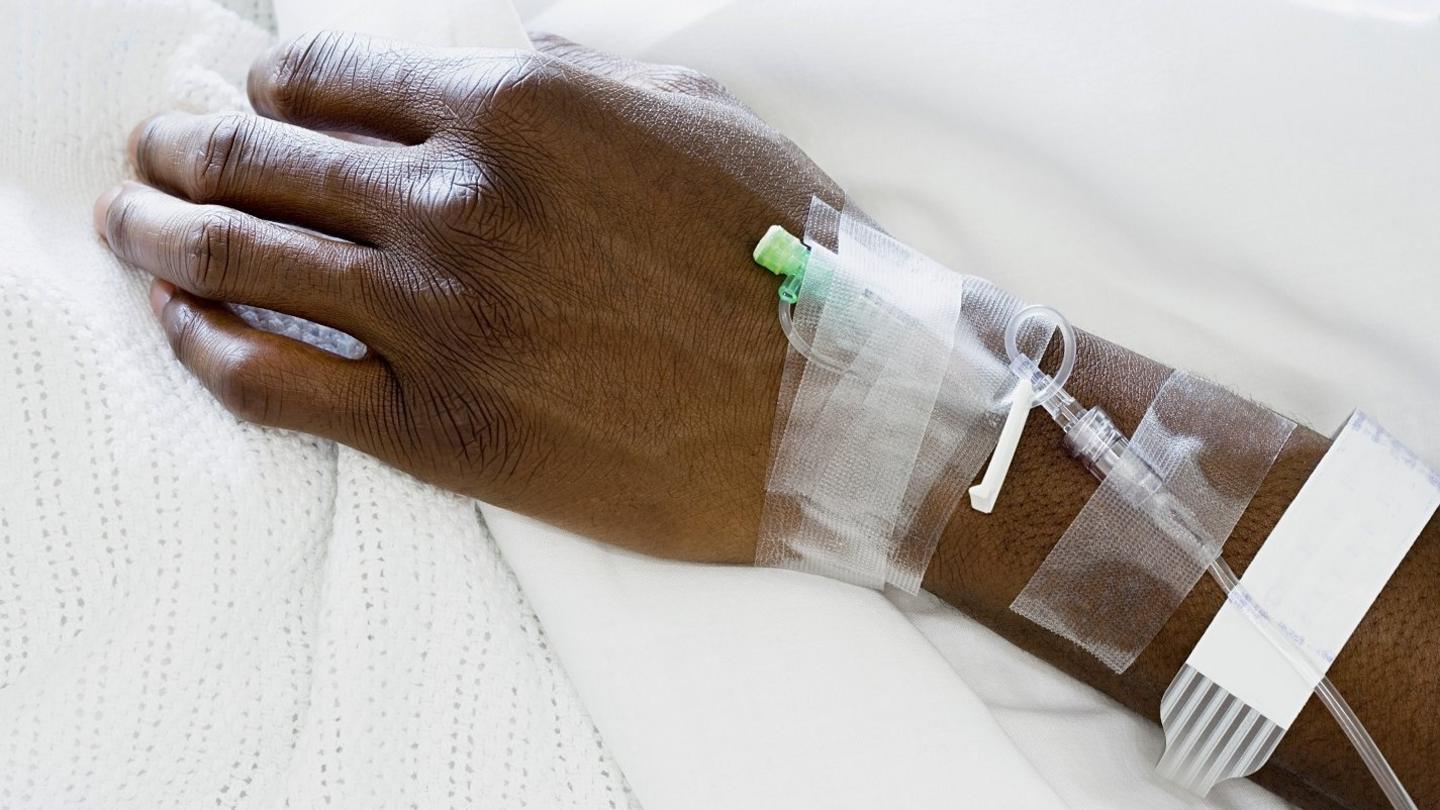
- Published20 November 2018
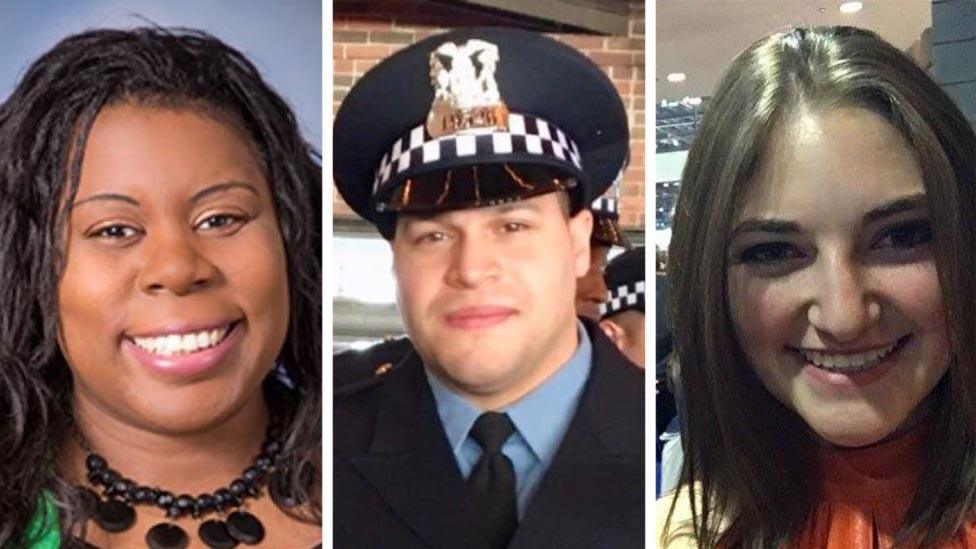
- Published19 November 2018
